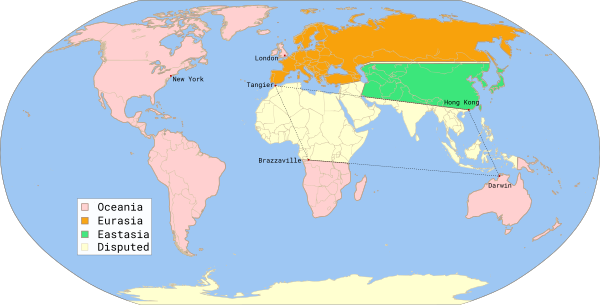"If there were a global oil shortage — like the ones in the 1970s — we couldn’t cut back
our oil exports to the U.S. in order to redirect the oil to Canadians," writes Linda McQuaig
of little known provision Canada's free trade agreement with the U.S.
Thu., June 8, 2017
NAFTA’s dirty secret: it lets U.S. control our oil
By LINDA MCQUAIG
In the wake of Donald Trump’s fiery threats to end the trade deal between the U.S., Canada and
Mexico, the subject of NAFTA has become much more interesting to Canadians than before, when
it mostly consisted of talk about softwood lumber and the dairy industry. Boring.
In fact, Trump or no Trump, NAFTA has always been a potential firecracker of an issue, if only the
public knew what was in the deal.
But for more than 20 years, Canadian politicians have largely managed to keep the focus on
lumber and cows, distracting us from the truly outrageous aspects of NAFTA: the surrender of
Canadian sovereignty in a couple of key areas.
Now that Trump is forcing us to renegotiate NAFTA, there’s lots of talk here about how Canada
must be tough, and even demand some changes we want. A big spread in the Globe and Mail last
week identified two — and only two — “contentious issues” for Canada: lumber and cows.
That short list, with all due respect, strikes me as a steamy pile of covfefe.
Left out, as usual, is the notion we should be trying to renegotiate sections of the deal that erode
our sovereignty.
One of those sections, the investorstate clause, which gives corporations the power to sue
governments over laws threatening their profits, has received some attention, although less than it
deserves.
But there’s been virtually no attention to another section, Article 605, which effectively
relinquishes control over our energy resources to Washington.
Article 605 was considered such an extreme infringement of national sovereignty that Mexico
refused to accept it. Instead, Mexico demanded and was granted an exemption to that clause when
it joined NAFTA in 1994.
Let’s shine a little light then on this mostly darkened corner of NAFTA: Article 605 limits the
power of governments to cut back energy exports. So, for instance, Canada must continue to make
available to Americans the same proportion of our energy as in the previous three years.
If there were a global oil shortage — like the ones in the 1970s — we couldn’t cut back our oil
exports to the U.S. in order to redirect the oil to Canadians.
While section 605 has always offended those who care about sovereignty, it poses huge new
problems in the age of global warming.
If we’re serious about fighting climate change, we’re going to have to phase out dirty oilsands
production and rely on our remaining reserves of conventional oil (we have about 11 years left, at
current rates) while we transition to clean energy, argues Gordon Laxer, founding director of the
University of Alberta’s Parkland Institute and author of After the Sands: Energy and Ecological
Security for Canadians.
But if we reduce our consumption like this, the Big Oil companies operating in Canada will just
export more of our oil to the U.S. And, under Article 605, that will increase our future oil export
obligations to the U.S., explains Laxer.
It’s not hard to see why the erosion of energy sovereignty in Article 605 — apparently unique to
NAFTA among all global treaties — was rejected by Mexico, a country that celebrates an annual
Energy Independence Day to commemorate its 1938 nationalization of foreignowned oil
companies.
Mexico’s fierce defence of its sovereignty stands in sharp contrast to the easy submission to
Washington’s energy demands by Canadian politicians, led by then Conservative Prime Minister
Brian Mulroney.
Mulroney happily agreed to U.S. demands that NAFTA provide guaranteed access to our energy,
which U.S. leaders have always regarded as rightfully theirs.
Mulroney and the Alberta government were actually keen to limit Ottawa’s control over our energy.
They saw this as a way to prevent future Canadian federal governments from following the lead of
Pierre Trudeau who introduced the controversial National Energy Program in 1980 to increase
Canadian ownership of our energy sector.
Whatever happens in the upcoming NAFTA talks, Prime Minister Justin Trudeau’s team will insist
they fought hard for Canada’s interests. And that will be true — when it comes to lumber and cows.
Just don’t expect them to fight for our right to control our own energy reserves.
After all, in an age when control over energy shapes global politics and the fate of the world, why
wouldn’t Canadians be happy to leave our energy in the hands of Trump’s Washington and Big Oil?
Linda McQuaig is a journalist and author. Her column appears monthly.
https://www.thestar.com/opinion/commentary/2017/06/08/naftas-dirty-secret-it-lets-us-control-our-oil-mcquaig.html
Freedom of contract. We sell them guns that kill them; they sell us drugs that kill us.
Last edited by: tungsten on June 11, 2017, 12:34 p.m., edited 6 times in total.









